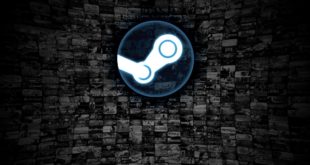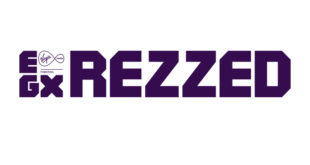The introduction of the new digital chart presents a significant milestone for the industry.
You might not think so at first glance. Yes, it’s just a list of numbers – like every other Chart-Track report. And yes, there are things missing – no MMOs and micro-transactions just yet, and it’s PC-only for now.
But that’s the point.
This is the first step in addressing what has been a sticking point for many publishers. ELSPA should be applauded for convincing publishers to do something that no other organisation has managed.
And it’s the first step in something might just spark a catalyst for huge change in the trade.
For a long time, many have declared the PC dead when it comes to games. But the likes of Facebook, PC Gamer, World of Warcraft and Sports Interactive are just a few of the voices that have begged to differ.
This new sales chart could well vindicate their approach.
Once the industry acknowledges that there is money in the PC hills, investment will return. And that means the inevitable evolution of the games industry. Are you ready for the changes? The big ones are…
…the evolution of retail
Last week I said that online isn’t cancelling out physical retail – I stand by that. But that doesn’t mean the latter will change drastically as digital content continues to bed into video games. GAME and HMV are already testing ‘new experience’ concept shops that redefine how games are presented to customers. Best Buy for one has shown how even basic, big open areas and presentation-style retail can set stores apart. In time, all those experiments might just define the future of games retail; something people visit for entertainment and fun out of choice, not because they have to.
…the destruction of pricing
Pricing is much more fluid online – we’ve already heard countless stories of free apps and PC games that have ‘free days’ which in fact drive purchase intent once the price has gone back up. I’m informed this will be a key part of the learning behind ELSPA’s initiative to define the chart in the first place. So while the physical retail sphere looks at lengthening a product’s value with those higher RRPs and luxury SKUs, expect more publishers and developers to catch on to this at the other end of the spectrum.
…the rise of the geek
MCV has written at length about the rise of the casual gamer. We’ve got a sister brand dedicated to this movement. There’s even a wanky buzz word – ‘casualisation’ – to sum it all up. But the truth is we’re not just reaching out to engage dumb drones with this expansion, we are turning civilians into games and technology experts. They know how to download apps, update firmware, shop around for a bargain, hook up a component connection and wire their surround sound. Treating your consumers like your equals, not stupid pedestrians to talk down to, is what has worked for all those developers that engage with their audience. This will become the heart of the games industry over the next few years.
…the console becomes gaming’s ‘cinema’
Which is to say that the safer, big-budget experiences will continue to be a key part of what people go to GAME to buy – leaving the PC to become our TV, home of quicker and sometimes more hard-hitting experiences. Check out Channel 4’s The Curfew for proof – it’s a UK-made game about social injustice and civil liberties. Hardly the kind of thing Activision will greenlight, but perfect for the online frontier.
…the console becomes obsolete
This is real long-term stuff, but it’s possible the life-expectancy of consoles is shorter than we think. Services like Gaikai and OnLive are just the start of what will be a significantly different way of getting to games content – Microsoft and Sony are surely looking at what they are doing, Nintendo admits as such. Individual, distinct devices from expert electronics manufacturers will not go away. But the Android vs iPhone philosophies, which plug a unique and mostly open OS and app eco-system into wider web services, are the real indication of where this market is going, not DS vs PSP.
…the oncoming era of openness
This is the big one. ELSPA has knocked down a huge barrier by getting publishers to share data – however it’s only on PC. Microsoft, Nintendo and Sony will have to keep apace with these changes, or they will be left behind (see ‘the console becomes obsolete’ above). Openness and proprietary, closed networks don’t vie with the online future – be that in development (Apple has thrived on third-party apps, remember). It can even have a knock-on effect for PR, too; the PR shield that plots/protects an announcement, screenshot leaks, the hideous-sounding ‘asset drop’… that all dies in the face of digital’s ‘release first, answer questions later’ ethos.
So – are you ready?

 MCV/DEVELOP News, events, research and jobs from the games industry
MCV/DEVELOP News, events, research and jobs from the games industry



